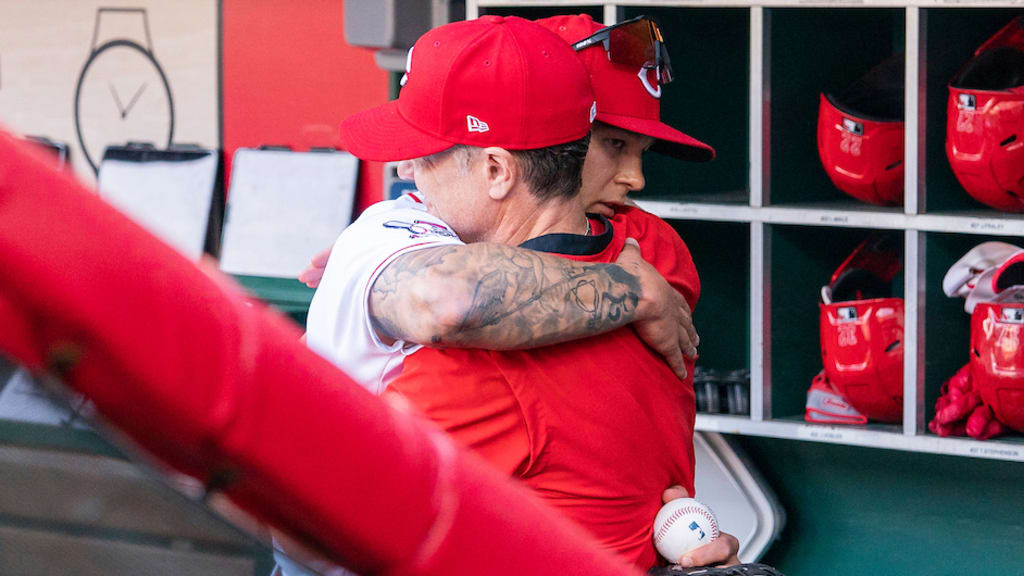
Through its Reds Country Cares initiative, the Reds are committed to utilizing their platform to spotlight resources that help our communities. Each month, the organization highlights a cause or topic and partners working to benefit our community in that area.
In the month of May, Reds Country Cares is focusing on Mental Health Awareness. With May being Mental Health Awareness Month, the Reds invited guests from local organizations to the ballpark to participate in a pregame ceremony in appreciation of their work to help our community with resources and support for those in need. On May 10, representatives from the Fernside Center for Grieving Children, Child Focus, Lighthouse Youth Services, Talbert House and Hamilton County Mental Health and Recovery Services were honored on the field, and on May 24, members of the 988 Initiative, 1N5 Foundation and the Ohio Suicide Prevention Foundation were recognized.
Whether we know it or not, mental health is something that affects all of us. And that goes for baseball players as well.
Reds manager of Wellness and Education Becky Schnakenberg is in her 25th season in professional baseball. Prior to settling into her current role, she owned a consulting business that provided counseling and education to multiple MLB teams. The 2023 season marks her fourth with the Reds full-time and 10th in the organization overall.
Schnakenberg¡¯s No. 1 duty on a daily basis is to be the point of contact for any mental health issue that comes up on the baseball side of the organization. She works with players from the Dominican Summer League all the way up to the big league squad. If players or their families have any issues, they reach out to Schnakenberg so she can help directly or refer them to those in the community that specialize in the specific area of need.
¡°At the beginning of my career, I was just managing problems,¡± she said. ¡°Now we do a lot of proactive and preventative programs to help people with their mental health -- a lot of presentations on communication styles, identifying symptoms like depression, anxiety and other mental health issues, and learning how to manage your stress. People on the outside think working in baseball is a dream world, but it¡¯s very challenging and a large time commitment from our players, families and staff. So we do a lot of education on how they can manage those things and how we can support them.¡±
A primary example of these proactive programs is the work the Reds' mental health staff does with the team¡¯s international players. Kaitlin Beltre, the Reds¡¯ education coordinator, runs a high school education program for the international players to help them graduate high school. They take classes for English, cultural education and other areas while participating in interactive activities with American players so that they can get to know one another and better understand their backgrounds and cultures.
¡°The first couple years for these players are the most difficult,¡± Schnakenberg said. ¡°We recently added a fulltime life skills position in Goodyear, [Ariz.], to help out youngest and most vulnerable players with their day in, day out struggles. We were doing that in the past, but now, we have someone full time so I¡¯m really proud of the decision that ownership and management has made to put their money where their mouth is and let us hire people that can really help make that transition easier.¡±
After working with multiple teams in baseball over the years, she feels she has found her forever home with the Reds. A big reason for that is because of her respect for how the organization genuinely cares about its players and employees, and that has been especially evident in recent years with the investment the Reds have made when it comes to health and wellness.
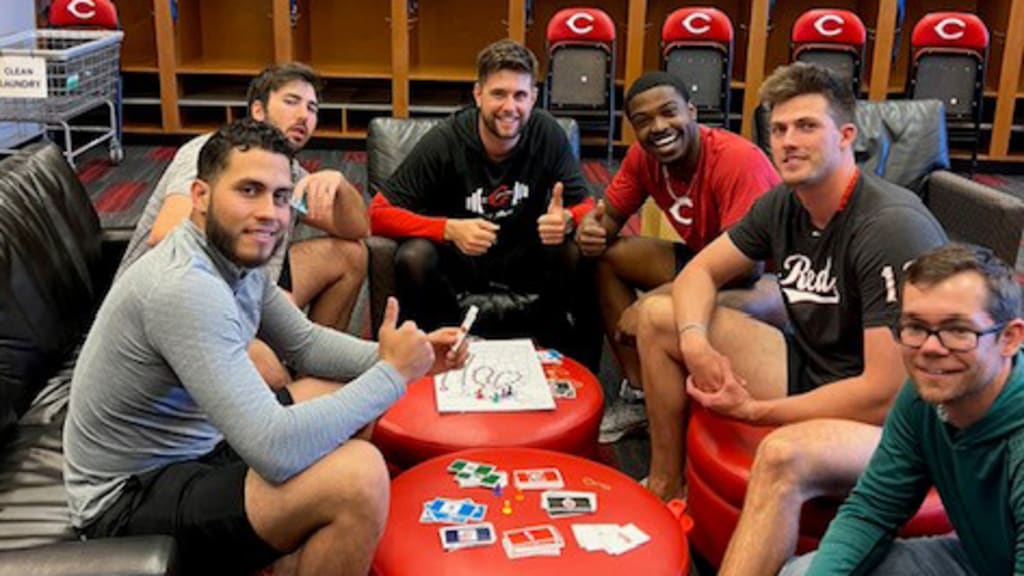
When Schnakenberg started, she was a staff of one that was responsible for not only the Reds, but all their Minor League affiliates. Now, she works with six other full-time employees which enables them to do much more than they ever could. In addition to Beltre, Schnakenberg works alongside Tim Rosenbaum (life skills supervisor) and Rafael Castillo (wellness coach). Her wellness and education department also works closely with the mental performance staff comprised of Dr. Vanessa Shannon (director of mental performance), Rafael Dubois and Connor Ryan (mental performance coaches).
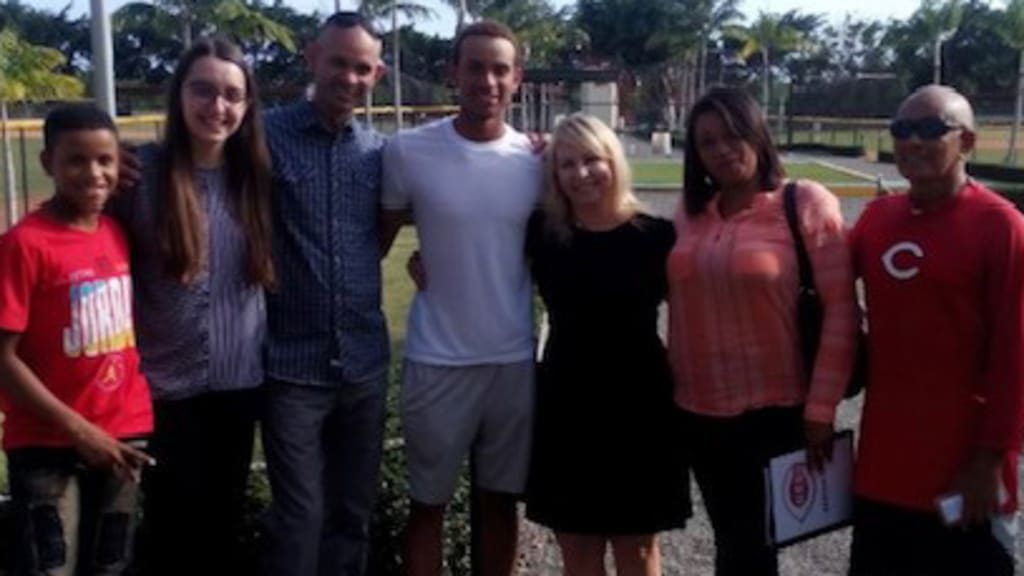
A significant reason why the staff has grown and is able to do so much more is because of how the world has changed. People are beginning to see mental health for what it really is -- a normal part of life. Schnakenberg attributes this shift in mind-set to being a direct result of the COVID-19 pandemic.
¡°I think that¡¯s where the change began,¡± she said. ¡°Not only was it obviously a medical crisis, but it resulted in a worldwide mental health crisis from people being isolated, lonely and having their worlds turned upside down. Children and families really took the brunt of that. I believe that crisis resulted in a positive shift and more open-mindedness on mental health among all generations of people. Through media, we were able to connect and people admitted what they were feeling and going through, and that is the beauty of change in the world. So it was one of the silver linings, but there¡¯s still a long way to go.¡±
Among those helping to normalize the subject has been professional athletes, including Reds players. In the last couple seasons, multiple Reds have spoken about mental health on a variety of platforms. On the Jim Day Podcast, Nick Senzel opened up about his struggles last year, and Jake Fraley did the same this year.
For Fraley, it wasn¡¯t that he necessarily had a problem discussing mental health in the past; it just wasn¡¯t something he was conditioned to do.
¡°There is a stigma on it, so it¡¯s not necessarily a hot topic of conversation, especially within sports,¡± he said. ¡°A majority of us, as the case used to be for me, kind of stay away from it. You¡¯re always taught to kind of deal with things in different ways rather than admit and accept that you¡¯re struggling and need help with learning how the brain functions.¡±
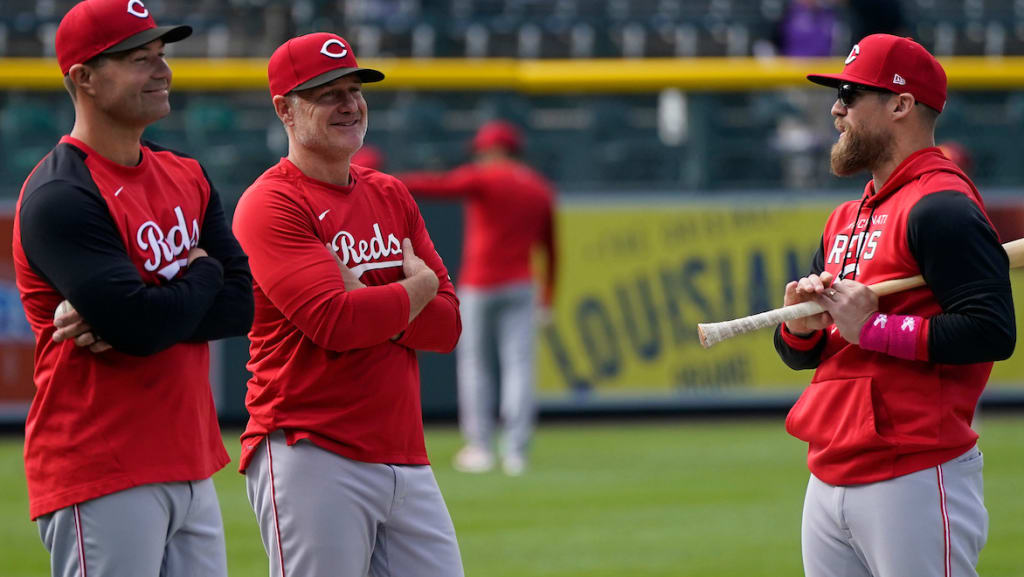
Manager David Bell remembers thinking similarly during his playing days.
¡°I remember whether it was teammates or myself, you never said a word,¡± Bell said. ¡°You didn¡¯t want to say anything to anyone because it would come across as being weak or being the guy with the problem. But we all have things we¡¯re dealing with, it¡¯s very normal. And to be able to ask for help, or even just talk through things, whether it¡¯s anxiety, depression or anything else, sometimes that¡¯s all you need. It¡¯s so much better than holding it inside.¡±
Bell comes from a family of Major Leaguers that spans three generations. His grandfather was Reds Hall of Famer Gus Bell; his father, Buddy, played for and still works for the Reds organization; and his late brother, Mike, also donned the Reds uniform. Having been around the game his entire life, he has noticed a shift.
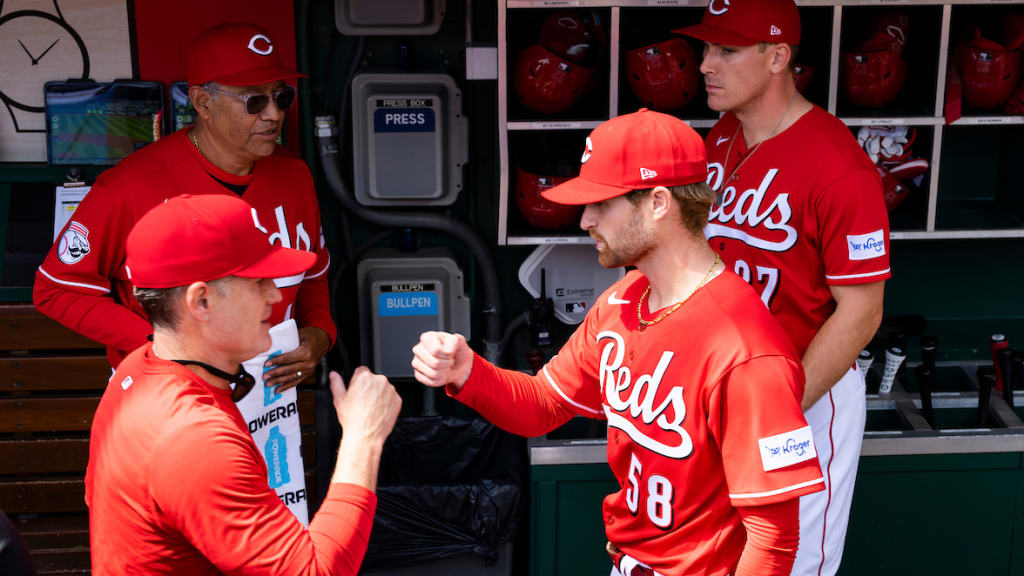
¡°I feel like over the last 15-20 years, it has gotten so much better,¡± he said. ¡°It¡¯s a [much] healthier environment. In my position, I¡¯ve noticed an increase in the comfort level of a player just coming in and talking to me about life and things they¡¯re dealing with. I don¡¯t have the solutions and often I¡¯ll recommend speaking to Becky, Vanessa or someone like that. But it makes me happy that they feel comfortable talking to me or another coach. We¡¯ve come a long way.¡±
For the players, having coaches inside the organization and individuals outside to talk through issues with is important for on-field performance and off-field peace of mind. Playing a sport at the highest level is certainly a dream job, but it also comes with an immense amount of pressure, expectations and failure, all on a public stage.
¡°There is so much failure in this game,¡± Fraley said. ¡°But your brain doesn¡¯t recognize that you¡¯re playing a game that has a lot of failure; it just recognizes that you¡¯re failing a lot. So you have to learn how your brain wants to function through these things and how to cope with all of it, learn those skillsets to be able to apply and put into action that helps your brain register through everything.
¡°As I¡¯ve gone through my big league career, there have been times where I feel like the ground is shaking beneath me and I feel like I can¡¯t handle it, to the point where I didn¡¯t want to play this game anymore. But I had a support system around me and good people that helped guide me toward understanding the mental side of my job and the mental side of life. Ever since then, it¡¯s become a passion and changed everything. It¡¯s helped me to be a better father, husband, son and baseball player. It¡¯s changed my life.¡±
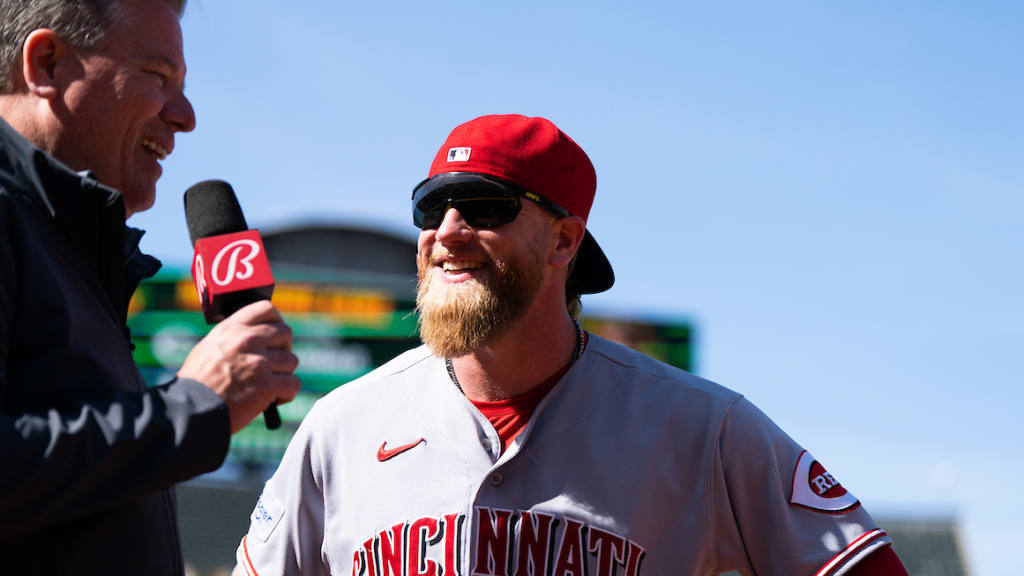
This change Fraley talks about wasn¡¯t something that happened overnight. It took time to get to this point, and it¡¯s an ongoing effort to continue on this path that has him in such a positive place mentally. He hopes that by speaking up, he can bring awareness to something that everyone goes through, whether they recognize it or not.
Everyone has ups and downs in their lives. That¡¯s life. But it¡¯s how you equip yourself to deal with those problems that will make the difference.
¡°I wanted to take it upon myself that whenever I got the opportunity, I wanted to talk about it because of how much it changed my life,¡± Fraley said. ¡°Everyone is struggling with something, no one is living a perfect life. As humans, we need to learn how the brain functions and how to process those things, not only to live in happiness day to day, but to help gain a sense of control over situations that we don¡¯t have control over.¡±
The Reds outfielder speaking so openly and candidly about a topic that was so hush-hush not long ago is just one of countless examples across sports of players bringing this subject to light. The Athletic put out an in-depth story in May bringing mental health into focus that featured firsthand accounts of players¡¯ struggles. Over the last several years, players from different professional sports have chronicled their journeys on The Players¡¯ Tribune.
Schnakenberg hopes this trend continues. People with platforms who keep the conversation going is exactly what is needed to remove the stigma and let people acknowledge mental health for what it is: normal.
¡°Younger people and our peers will follow our lead,¡± Schnakenberg said. ¡°The more of us that join together and have real conversations about mental health and normalizing it, that¡¯s how we¡¯ll continue to grow. In my presentation to the big league club in Spring Training, David Bell sat next to me when I talked to the players. And he told them that he felt lucky to have me as a resource and encouraged them to take advantage of all the resources that we have. That was huge. We need to continue having our leaders everywhere keep these issues at the forefront.¡±
Obviously, not everyone has access to the resources and experts that professional athletes have. But that doesn¡¯t mean there aren¡¯t ways to get help.
Most primary-care physicians can help connect people for counseling, treatment, support groups and medication. Locally, organizations like the Ohio Suicide Prevention Foundation and the Lindner Center for Hope offer assistance. There is a lot of good information easily accessible online. And if you just make the effort to reach out to those around you -- whether it¡¯s at school, work or someone in your personal life -- most people will be able to guide you in the right direction.
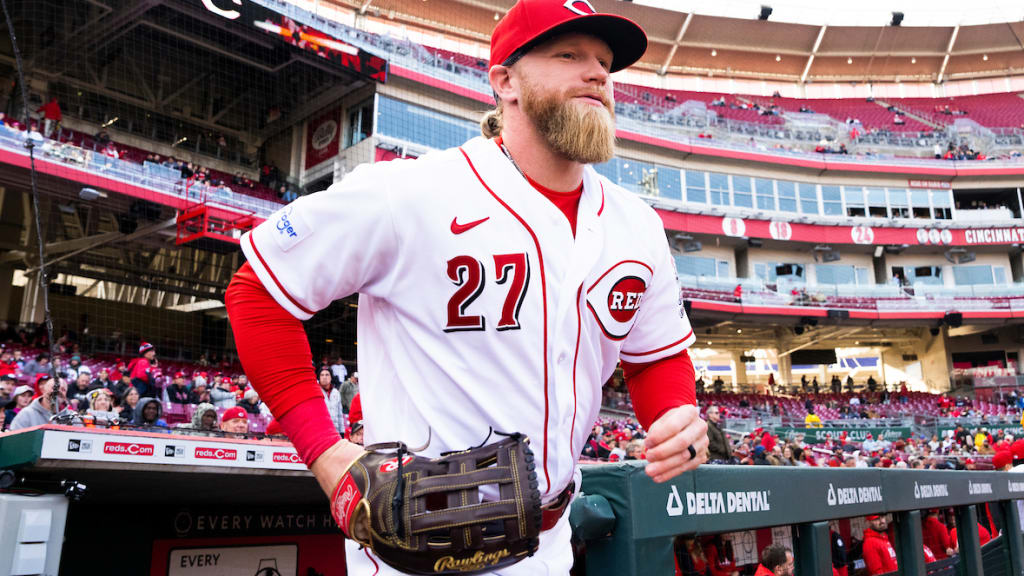
As Fraley attests, taking that first step can be the most difficult. But it¡¯s worth it.
¡°It¡¯s the start that stops most people,¡± Fraley said. ¡°Once you reach out to people and learn more about it, you realize it¡¯s not complicated stuff. You just need to have the awareness that it¡¯s OK to get help. It¡¯s OK to have someone to talk to. In reality, you¡¯re gaining a little bit of control over your situation, regardless of how you feel. So being able to talk about it with those close to you that you trust, while understanding it might be uncomfortable, is a lot better than holding it in for yourself. Always put yourself as a priority.¡±
For more information on mental health and organizations that can offer help in Reds Country, visit reds.com/Cares.

